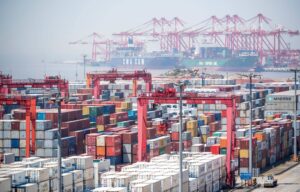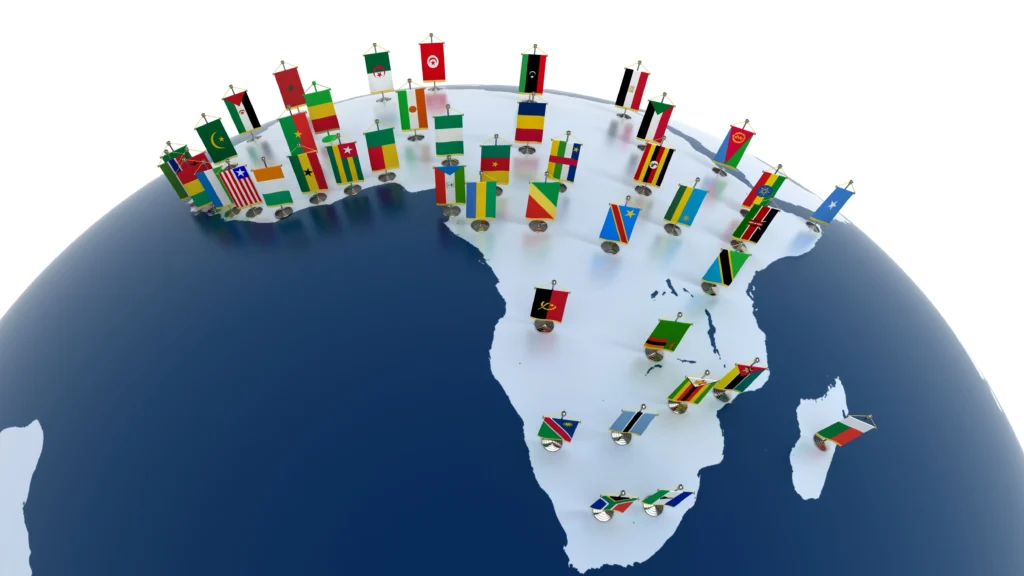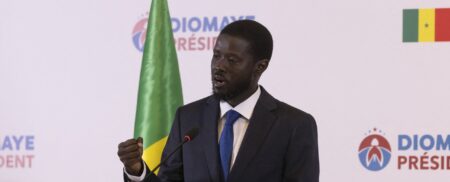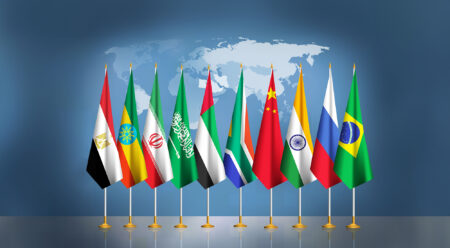- According to IMF projections, under this extreme scenario, Africa’s economic growth could face a permanent decline of up to 4 per cent of real GDP after ten years.
- Recent economic shocks have exposed America’s weakness in terms of policy readiness.
- Global economic and financial fragmentation concerns have grown in response to escalating geopolitical tensions, strained US-China relations, and Russia’s invasion of Ukraine.
The United States has claimed the ultimate global economic and political superpower for many years. However, recent economic shocks have exposed America’s weakness in terms of policy readiness. Other countries have lost trust in the US and its claim to global leadership. As the US loses credibility, China is championing the calls for change in the global power axis. There is, therefore, a serious geopolitical realignment taking place. The impact on Africa’s economic growth, both positive and negative, remains immense.
Financial Fragmentation and Effect on Africa’s economic growth
Global economic and financial fragmentation concerns have grown in response to escalating geopolitical tensions, strained US-China relations, and Russia’s invasion of Ukraine. The ongoing tensions have put Africa’s financial stability in jeopardy.
The cost of financial constraints, heightened uncertainty, and credit and investment outflows caused by recent macroeconomic turmoil have been exacerbated amid rising geopolitical tensions. This situation has increased the debt rollover risks and financing costs for banks. It has also caused interest rates on government bonds to rise, lowering the value of banks’ assets and increasing their financing costs.
Banks and the funding squeeze
As a result, tensions may spread to banks through the real economy. The impact of supply chain and commodities market disruptions on the domestic economy and inflation might worsen banks’ market and credit losses. This decreases bank profitability and capitalization further. The stress reduces banks’ risk-taking capabilities, pushing them to reduce lending, further impacting Africa’s economic growth.
Furthermore, sustained global inflation and stricter monetary policies have increased African borrowing rates. The worsening situation has also put further pressure on exchange rates. Since the spring of 2022, no nation has issued a Eurobond. Africa’s reliance on costly market-based finance and a long-term fall in aid budgets has increased the interest burden on public debt.
The finance stability concerns have an impact on a region that is already dealing with significant macroeconomic imbalances. Public debt and inflation remain at historic highs. Double-digit inflation remains evident in approximately half of the African countries, reducing household buying power and affecting the most disadvantaged.
This situation has hampered Africa’s economic recovery. The financial squeeze will also influence the region’s long-term economic prospects. Due to a lack of financial resources, governments may have to restrict funding to important development areas such as health, education, and infrastructure, reducing Africa’s economic growth potential.
READ MORE: Africa Refuses to be a Pawn in US-Russia Tensions
IMF’s warning on Africa’s economic growth
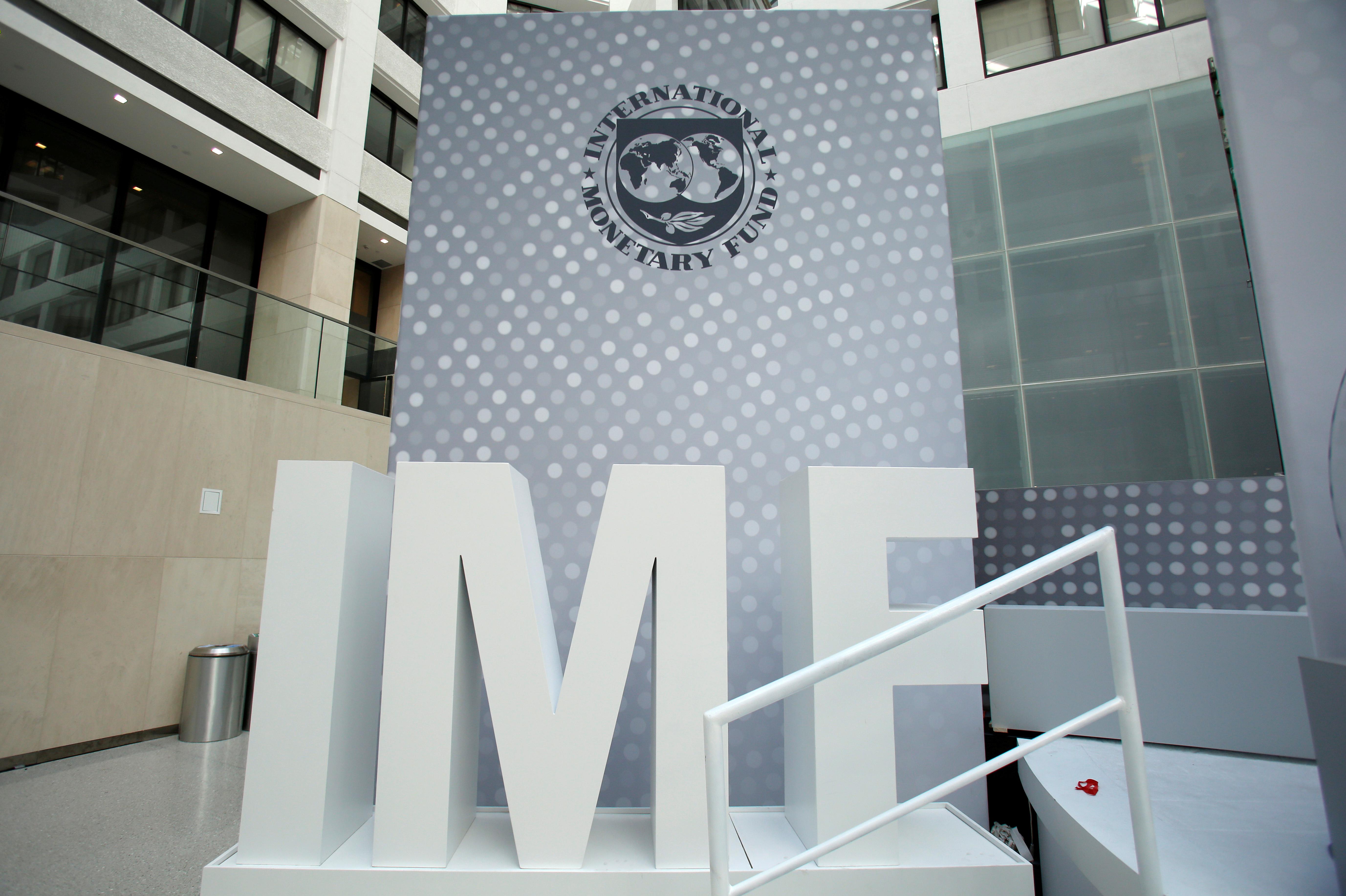
Due to the ongoing geopolitical realignment, many African countries remain unsure which contending powers to follow. They depend on choices made in Beijing, Washington, Moscow, or other major power capitals. This circumstance puts economies in jeopardy. The IMF predicts Africa’s economic growth will slow to 3.6 per cent this year. Activity will likely drop for the second year in a row due to a global downturn.
Still, Africa will lose the most if the world splits into two separate trading blocs focused on China, the United States and the European Union. According to IMF projections, under this extreme scenario, Africa’s economic growth could permanently decline up to 4 per cent of real GDP after ten years—losses more significant than many nations experienced during the Global Financial Crisis.
Africa has benefited from economic and commercial relationships with new economic partners, namely China. However, they have rendered nations that rely on food and energy imports more vulnerable to global shocks. African countries, for example, have been impacted by a surge in trade restrictions after Russia’s invasion of Ukraine. If geopolitical tensions escalate, nations may face higher import costs or lose access to important export markets. This might affect over half of the region’s international trade value. (Alprazolam)
Diversion of trade relations
Geopolitical tensions can result in a reduction in capital flows across trade blocs, compounding the losses. As a result, Africa might lose an estimated $10 billion in foreign direct investment (FDI) and official development aid inflows yearly (based on an average 2017-19 forecast). In the long term, a decline in FDI could hinder the much-needed technology transfer.
Deepening geo-economic fragmentation may exacerbate coordination issues among creditors for nations attempting to restructure their debt. The continent would do better if the US/EU severed connections with Russia and African countries and allowed free trade. In this scenario, trade flows would shift towards the rest of the globe, offering the potential for new relationships and perhaps enhancing intra-regional trade. Because some African nations profit from expanded export markets and lower import prices, the continent would unlikely experience a GDP loss. Oil exporters selling energy to Europe may benefit as well.
Resilience a priority amid geopolitical realignment
The global geopolitical realignment continues, with each nation seeking to change so as not to lose. China is spearheading the realignment, with the US hard on the trail to recapture lost glories. African governments remain followers in the realignment, with varying capabilities for finding their position.
Africa remains free to make use of the many foreign associations available. Nonetheless, African states should affirm their interests for the region to benefit from fresh global attention. This can help prevent foreign forces from using African governments to advance their interests.
Countries must strengthen resilience to handle shocks and effectively cushion Africa’s economic growth. A feasible option remains to support regional trade integration within the African Continental Free Trade Area. This requires eliminating tariff and non-tariff trade obstacles, improving customs efficiency, harnessing digitalization, and resolving infrastructural gaps. Domestic financial market development could broaden financing sources and reduce the volatility of too much reliance on foreign capital and investment inflows.
Africa must capitalize on potential changes in trade and FDI flows. As a result, African governments must identify and develop industries that may benefit from trade diversification, such as energy. As a result, African commodity exporters might replace a significant portion of Russia’s energy market share in Europe.
The implications of fragmentation and polarization on Africa’s economic growth and whether these trends will continue are unknown. What is certain is that multilateral organizations will need to continue encouraging international dialogue to promote economic integration and collaboration. As a result, one problem that emerges is whether African nations would adopt a unified stance or take a non-aligned approach in the Sino-American dispute.
READ MORE: Russia and China Trigger a new scramble for Africa
